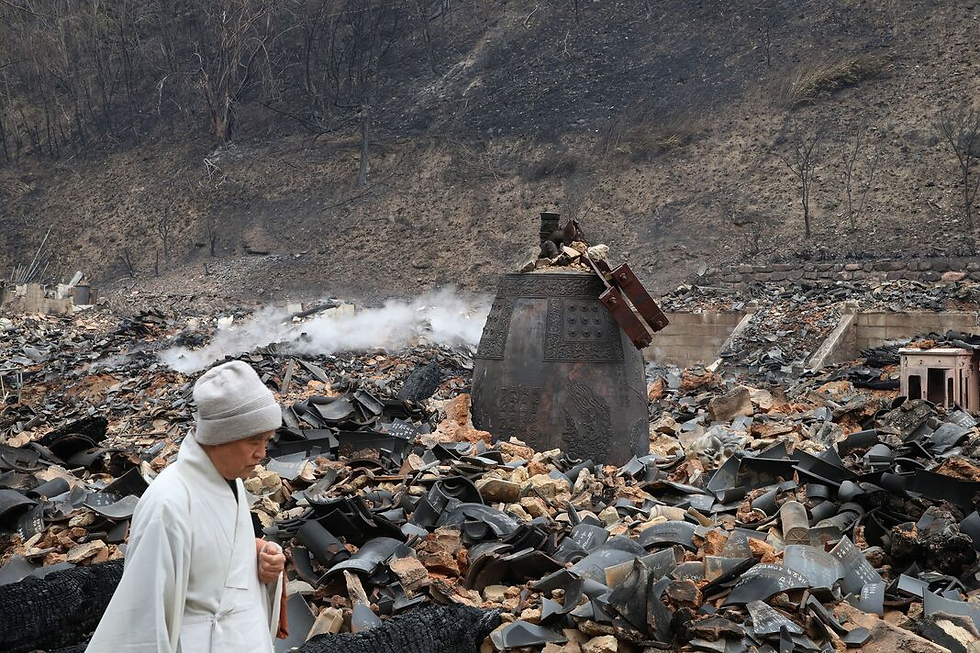Man Performing Ancestral Grave-RiteS Suspected of Starting Deadly Wildfires in South Korea

South Korean authorities have launched an investigation into a man suspected of accidentally igniting the country’s most devastating wildfires while cleaning his grandparents’ gravesites. The fires, exacerbated by high winds and dry conditions, have claimed 30 lives and burned more than 48,000 hectares (118,610 acres) of forest, making it the most destructive wildfire event in the nation's history.
In Uiseong, North Gyeongsang province—the hardest-hit area where 12,800 hectares of woodland were affected—a 56-year-old man is suspected of inadvertently starting a fire while tending to his grandparents' graves on March 22. An official from the provincial police confirmed the man was booked for investigation without detention on Saturday.

Investigators plan to summon the suspect for questioning once the on-site inspection is completed, which could take over a month. According to reports, the suspect’s daughter informed authorities that her father attempted to burn tree branches overhanging the graves using a cigarette lighter. The flames, carried by the wind, quickly spread and ignited a wildfire. Police have withheld the identities of both the suspect and his daughter and have not officially confirmed her statement.
The fires have been fueled by strong winds and prolonged dry conditions, with the region experiencing below-average rainfall for months following South Korea’s hottest year on record in 2024. Among the 30 fatalities is a helicopter pilot who died when his aircraft crashed in a mountainous area while battling the flames.
The destruction has extended to several historic sites, including the Gounsa temple complex in Uiseong, originally believed to have been built in the seventh century. The disaster has also highlighted South Korea’s demographic challenges, as rural regions, which are both underpopulated and disproportionately elderly, struggle to manage large-scale emergencies.







Comments